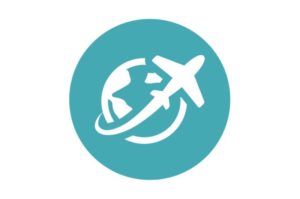SITA is calling for more cooperation in the airline industry. The company is particularly worried about the current state of passenger screening, noting that the average processing time is double what it was before the pandemic, even though overall traffic volumes are down considerably in the wake of COVID-19.

The problem, according to SITA, is that passengers need to provide more information than they did in the past to meet the latest health screening requirements. Vaccination records and COVID-19 test results are necessary to maintain public health. However, the sharing ecosystem is a hodgepodge of different solutions, many of which are not interoperable with one another and many of which may not be familiar to travelers or border agents at different locations.
The goal, then, is to find a way to integrate different solutions with one another to make it easier to share critical information. As it stands, travelers still need to present their medical records to a human agent when they check in at the airport. A more coordinated digital framework would allow people to upload their own travel and health credentials along with their passport before getting to the airport, and enable self-service check-in at kiosks and on mobile devices. That, in turn, would reduce the amount of congestion at ticket counters, and make people more willing to return to the skies.
For its part, SITA advocated for the use of its SITA Health Protect solution, which debuted in February. The platform lets people know what documents they will need at their chosen destination, and lets them to share those documents at security checkpoints. In that regard, the company argued that border agents (and not airlines) should be responsible for health credential inspections, since governments already need to inspect travel documents and they have the final say about who is and is not allowed to enter a country.
Whatever the case, SITA stressed that interoperability will be crucial moving forward. The industry needs to provide people with a single screening process, so that they know what to expect before they get to the airport. Digital technologies based on open architecture can help facilitate that kind of coordination, and bring a number of disparate solutions together under one consolidated umbrella. Such a service could even extend beyond the airport, as is the case with a new Aruba Happy Traveler Card that is being integrated with Health Protect and can be presented at restaurants and other venues on the island.
SITA went on to suggest that reliable health screening (both for COVID and for diseases like SARS and H1N1) will help the industry respond to future crises without needing to resort to a full lockdown. The company itself has been a staunch proponent of digital transformation in the air travel industry during the pandemic.

Follow Us